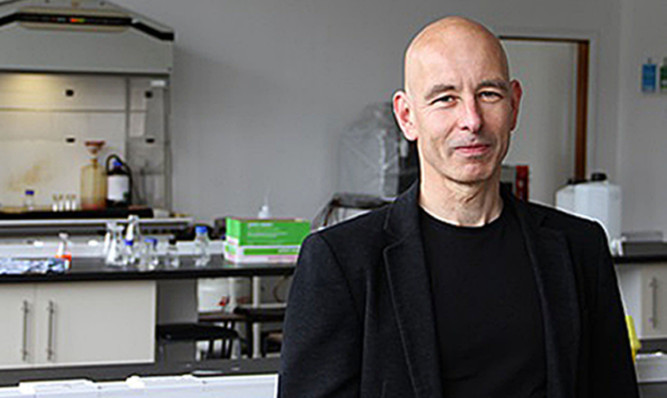Younger men should consider freezing their sperm to avoid their children suffering genetic disorders if they choose to have them later in life, according to an expert.
Freezing eggs from women planning families when they are older is not unusual, but bioethicist Kevin Smith, of the School of Science, Engineering and Technology at Abertay University in Dundee, believes freezing should also be considered for sperm to avoid the risk of “gradually reducing human fitness in the long term”.
In a paper in the Journal of Medical Ethics, Dr Smith says modern genetic studies have confirmed that the sperm of older men contain a greater number of mutations and that a minority of those mutations present a risk to the health of future children.
An abstract to his paper in the journal adds: “If demographic trends towards later fatherhood continue, this will likely lead to more children suffering from genetic disorders.
“A trend of later fatherhood will accelerate the accumulation of paternal- origin de novo mutations (genetic causes of disease) in the gene pool, gradually reducing human fitness in the long term.
“These risks suggest that paternal age is of ethical importance.”
He said options to counter the risk include health education to promote earlier fatherhood and “incentives for young sperm donors and state- supported universal sperm banking”.
“The latter approach would likely be of the greatest benefit and could in principle be implemented immediately.”
Allan Pacey, a professor of andrology at the University of Sheffield, said: “This is one of the most ridiculous suggestions I have heard in a long time.
“The idea that mass sperm banking for 18-year-olds should be funded by the NHS is simply crackers, in my opinion.
“We know that the sperm from the majority of men won’t freeze very well, which is one of the reasons why sperm donors are in short supply.
“Therefore, men who froze their sperm at 18, and returned to use it later in life, would essentially be asking their wives to undergo one or more IVF procedures in order to start a family.”
Professor Pacey said that, while there was evidence linking some genetic disorders to the age of the father, the risks are “really quite small” and are most likely to affect men aged over 45.
